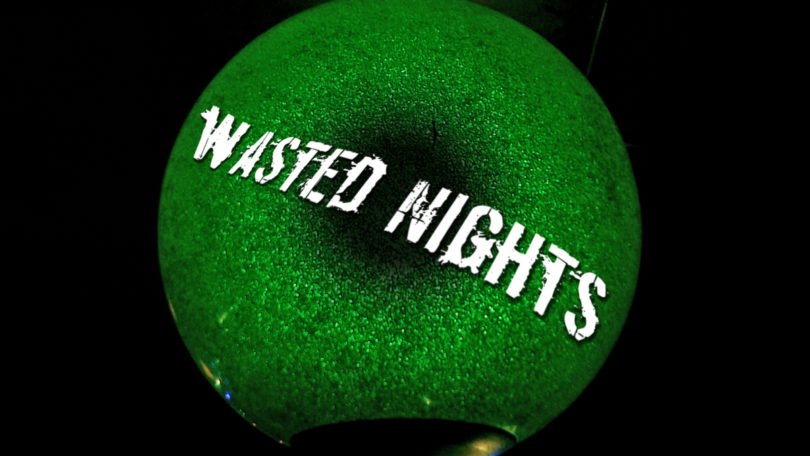Foreword: I would like to preface this entry by apologizing—first and foremost to friend and filmmaker Mark Thimijan, and also to readers—for the delay in posting this long-overdue article, and to once again thank Mark, my castmates, and all the other people involved in production for the opportunity to participate in such a heartfelt project.
– J. G. Lobo
I’m quite confident that Lincoln, Nebraska—the entirety of the state itself, for that matter—does not conjure many ideas related to filmmaking for most people. Though this is, by and large, an accurate assessment, despite my biased slant as a former denizen of this Midwestern agricultural hub, I hope I am not the first to inform readers that there is a vibrant independent filmmaking scene to be had in and around the metropolitan centers of Lincoln and Omaha. Charmingly loose-knit and informal, there is a true presence of genuine fervor for artistic endeavors in the form of acting, stage play, and cinematography (to name only a few).
Alongside professional performers and businesses, indie filmmakers and patrons thereof—almost entirely amateur, in the truest and proudest sense of the word, i.e. for love of the craft—regularly coordinate conflicting personal schedules with one another in order to unite for a common creative purpose.
Mark Thimijan is one of these fascinating individuals: possessing enough years under his belt so as to be capable of remembering the “analog” days of cinema, he has since made the transition into the modern digital realm of “filmmaking” (despite actual film hardly being used anymore) as keenly as any of his contemporaries. As with his many other projects—including the directing of the feature-length She Lives Her Life (2014) and, more recently, helming the cinematography of The Amityville Legacy (2016)—Mark brings his numerous professional skills of screenwriting, camerawork, and juggling countless minutiae on the fly to bear in the ten-episode web series, Wasted Nights (2015). Having performed various odd jobs both within the industry in California and as an independent filmmaker (or, more accurately, a one-man production crew, as any indie filmmaker knows all too well), Mark brings a humorous, sometimes gleefully sardonic, strain of humanity to the proverbial table in this very personal pet project.
Based on many of Mark’s own life experiences, Wasted Nights is an eclectic mixture of film-school esotericism and his own unique, callous sense of humor. Like life, most episodes of the web series are fairly nonchalant on the surface; yet underneath this veneer, via the varied interactions of an entertaining menagerie of characters, it is plainly and painfully demonstrated that even in the humblest of settings (yes, despite how cliché you may mistakenly think it is, often in ordinary places like local dive bars), the mundane avenues and corridors of daily living which we habitually frequent can unexpectedly lead to anything and everything, from mind-altering epiphanies to soul-crushing dejection. Diving deeper still, to the initiated film buff, Wasted Nights is not only a source of anecdotal humor—the kind of corny, self-referential frivolity that only movie addicts would likely understand, much less enjoy—but a living, breathing showcase of the current landscape of media consumption and production: it is neither governmental interference nor technological limitations, but oversaturation (on a scale that no great thinker of the past century could have ever dreamed) that is the greatest barrier to aspiring filmmakers at present. In a vast, ever-expanding sea of content, it is the ability to stand out, rather than reach or viewership, that concerns would-be auteurs; and, as I believe Wasted Nights itself subtly contends, it is something that merits discussion, a demand with which Hollywood is largely unconcerned and, more than likely, of which it is entirely unaware.
Relating to both the overarching narrative and the intermingled subplots, I mostly chalk up the series’ realism to the sincerity of the script, the frankness of each and every character. However, as any first-year film student will eagerly attest, the way in which a particular production was created also plays a pivotal role in its aesthetic identity. Mark’s approach of primarily using hand-held footage within an actual local bar (Marz Bar, if you’re ever in the area) during business hours gives Wasted Nights an intrinsic authenticity that I can only hope shines through to viewers as it did for us on location. Of course, this posited many production problems for Mark to solve, and countless obstacles for him and the cast to overcome; but it also led to just as many indelible moments of serendipity: improvised dialogue blurted out of frustration, or alternate takes born out of the tumultuous atmosphere, often times made the final cut after evaluation and consideration from the eternally open-minded director. Though Mark undoubtedly had every scene, every minute detail, envisioned long before shooting began, his past experience allowed him to roll with the punches—to balance passively going with the flow and rigidly adhering to precision—when inevitable schedule conflicts and mysterious absences forced well-laid plans in unanticipated directions.
As of this writing, I am happy to announce that in addition to popular video-sharing outlets like YouTube and Vimeo, Wasted Nights in its entirety is now available for streaming via Amazon Prime. Whether you choose to gradually consume each individual episode or to marathon the whole series, I think you’ll enjoy it; and even if you don’t know Mark personally, or you’ve never seen this or any of his other works, I guarantee you’ve met some of these characters in your travels (and if you haven’t, give it some time and brace yourself, because you will eventually).
A love letter to any self-professed film junkie, an intriguing epitome of modern filmmaking to the connoisseur, and a bemusing spectacle to anyone who’s ever entered a bar, pub, tavern, or drinking establishment of any kind, Wasted Nights is, paradoxically, the culmination of many productive nights. If you’ve been searching for an independent work of shoestring cinema relevant to today’s entertainment climate, and if you can handle the potential hangover afterwards, this is one concoction you’ll certainly want to try.
P.S. Thanks for all the drinks, Mark! Next round’s on me.
© 2017







